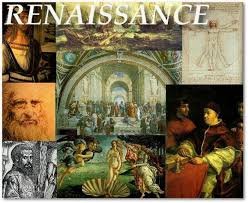The AI Renaissance
The Renaissance was a significant period in history and a cultural movement that marked the transition from the Middle Ages to modernity. It covered the 15th and 16th centuries and was characterized by efforts to revive and surpass the ideas and achievements of classical antiquity. The Renaissance was associated with great social change in various fields and disciplines, including the arts, architecture, politics, literature, exploration, and science.
During the golden age of the Renaissance, when movable type printing opened the doors of knowledge, a new paradigm was born. This was not greeted with universal enthusiasm. Authorities felt cracks in the foundation of their consolidated power. They recognized that an increasingly informed public undermined their monopoly on truth and thereby on power itself. However, even enlightened minds of the time were concerned that the rising tide of information could drown wisdom in a sea of misinformation. They therefore argued for a certain degree of editorial control to stem the information deluge.
Does that sound familiar? Today this dilemma also arises in the advance of artificial intelligence. Visionary thought leaders call for a prudent approach. Can artificial intelligence be used irresponsibly?
Mundane tasks are automated, creativity is enhanced, and decision-making is sharper than ever with predictive analytics. The AI Renaissance is not about machines replacing humans, but enhancing human capabilities, allowing us to excel in our work.
The open-source movement has been instrumental in making these technologies accessible to the general public. However, the need for regulation is growing. If regulation is hastily imposed, it could stifle the vitality of the open-source community. The dilemma is two-fold: imposing limits on open source may hinder innovation, and larger conglomerates in this field could strengthen their dominant position, leaving little room for newcomers.
The AI renaissance holds tremendous promise for reshaping our world and unlocking untapped potential. Embracing AI as a partner rather than an adversory, while being mindful of ethical implications, will pave the way for a future where humans and machines together create a brighter, more imaginative, and harmonious world.


